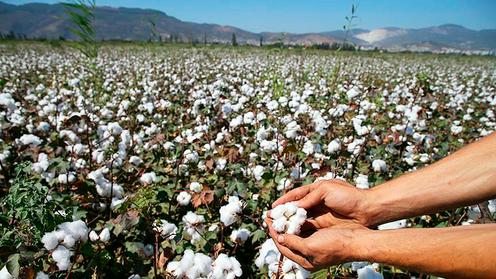The government of Uzbekistan has approved a subsidy of 1 million soums ($79) per ton of raw cotton sold on the commodity exchange. This measure is outlined in a decree issued on September 13, as reported by «Gazeta.uz».
The subsidy will be provided from the State Agriculture Support Fund under the Ministry of Economy and Finance. Cotton produced by cotton-textile enterprises and seed cotton are excluded from this subsidy program.
Farmers will not have direct control over the subsidy. The funds will primarily be used to repay soft loans obtained for the 2024 crop production. The remaining funds can be used to pay taxes and other mandatory payments, with any leftover amount transferred to the cotton producers' main accounts.
The subsidies will not be subject to banking service fees and will not be considered as income/turnover for taxation purposes.
The government will also compensate 20% of the cost of harvesting services for each ton of cotton collected by machine pickers in all regions, up to a maximum of 250,000 soums ($20).
The decree sets the starting futures price for a ton of raw cotton on the exchange at 7.8 million soums ($614). The initial futures prices for the 2024 crop are set at 6.8 million soums ($535) per ton.
Cotton producers and processing enterprises are allowed to conclude additional agreements to contracts made on the exchange for 2024, provided that the price of raw cotton is not lower than 6.8 million soums.
Independent Uzbek economist Yuliy Yusupov considers the price threshold unfavorable for cotton and textile producers. He explains that textile companies find it more profitable to buy cotton on the world market, and some clusters are pressuring farmers to sell cotton at lower prices.
Yusupov suggests abandoning the «feudal-collective farm system» of cotton sector management and transitioning to basic market relations. This includes allowing farmers to grow what they want, sell crops on the free market, buy resources in competitive markets, cancel all subsidies and benefits, and allow industrial enterprises to buy raw materials at market prices from anywhere.
In March 2020, a presidential decree liquidated the joint-stock company «Uzpakhtasanoat,» which oversaw the cotton industry. The document also provided for the abolition of the state plan for the collection and sale of raw cotton and the practice of setting purchase prices for it from 2020. However, this did not happen. In 2022, the Ministry of Agriculture of Uzbekistan set a minimum purchase price for cotton at 10,025 soums ($0.8) per 1 kg, while world prices were twice as low. As a result, clusters incurred losses of 6 trillion soums ($480 million), as reported by the President of Uzbekistan, Shavkat Mirziyoyev.










